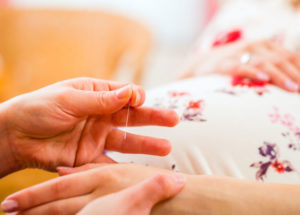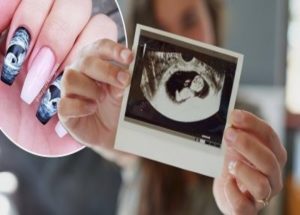Ectopic Pregnancy
Pregnancy is one of a woman’s most lovely experiences. The gift of being a mother is overwhelming and much appreciated by you and your partner. Not all pregnancies, however, turn out to be normal, and some have to be stopped as they can not be carried to fruition. An ectopic pregnancy is one of these types of pregnancy. Nearly 2 percent of the world’s pregnancies pose ectopic and mother health hazards.
An ectopic pregnancy may originally look like an ordinary pregnancy. But it may be painful as it advances and it will have to be stopped.
What Is An Ectopic Pregnancy?
In a standard pregnancy, the sperm and egg fertilize in the fallopian tube and are implanted in the uterus ‘ spongy endometrial lining. This lining offers all the nutrients needed for the egg.
However, the fertilized egg is implanted outside the uterus in an ectopic pregnancy. An ectopic pregnancy is more hazardous than it looks as it could be deadly to the mom. It is therefore extremely important that you keep an eye out for any strange symptoms in the initial stage of your pregnancy and consult your doctor instantly if you think that something is wrong.
Symptoms Of Ectopic Pregnancy
In the first few weeks of pregnancy, an ectopic pregnancy occurs most of the time. You may not even understand that you are pregnant and may not have any indications of an issue. The first symptoms are generally light vaginal bleeding and pelvic pain, but others might include:
- Nausea and painful vomiting
- Abdominal cramps
- Missed Period
- Pain on one side of your body
- Weakness
- Signs of shock
- Pain in shoulder, neck, or rectum
Ectopic pregnancy may result in rupture of the fallopian tube. If that occurs, with or without serious bleeding, you might have significant pain. Or it might be internal bleeding. If you have serious vaginal bleeding that causes lightheadedness, fainting, or pain in your shoulder, or if you have serious abdominal pain, particularly if it is on one side of your stomach, call your doctor instantly.
Causes Of Ectopic Pregnancy
You may never know why you are having an ectopic pregnancy. A damaged fallopian tube could be one cause. It could stop the fertilized egg from entering your uterus, leaving it to implant in or somewhere else in the fallopian tube.
But if you have one of the following, you are more likely to have an ectopic pregnancy:
- Pelvic inflammatory disease (PID)
- Scarring from previous pelvic surgeries
- Sexually Transmitted Disease
- Fertility Drug Use
- Infertility treatments such as in vitro fertilization (IVF)
If you get pregnant with an intrauterine device (IUD) in place, it could also happen.
Diagnosis
If your doctor thinks you’re having an ectopic pregnancy, she’ll probably do some testing, including a pregnancy test and a pelvic test. To view the condition of the uterus and fallopian tubes, an ultrasound test may be performed.
If your doctor confirms that you have an ectopic pregnancy, they will speak to you about the best therapy depending on your medical condition and your future pregnancy plans.
Treatments
Since a fertilized egg can not survive outside the uterus, the tissue must be separated to prevent severe complications from occurring. It is treated with two techniques: medication and surgery.
1. Medication:
If your fallopian tube has not broken and your pregnancy has not advanced very far, your doctor will be able to give you a methotrexate (Trexall) injection. It prevents the growth of the cells, and your body will simply absorb them. Most ectopic pregnancies, if caught early, can be treated with methotrexate.
2. Surgery:
Other instances require surgery. Laparoscopy is the most prevalent. Your doctor will create very tiny incisions and insert a thin, versatile tool (laparoscope) to remove ectopic pregnancy in your lower abdomen. You might also have to remove the fallopian pipe if your fallopian tube has been damaged. You may have to have a large incision for an emergency procedure if you drink heavily or if your doctor suspects you have broken your Fallopian pipe.
Prevention
In each situation, prediction and avoidance are not feasible. By maintaining excellent reproductive health, you may be able to decrease your danger. Wear a condom during sex with your partner and restrict your amount of sexual partners. This decreases your risk of STDs, which can trigger PID in the fallopian tubes, a disease that can trigger inflammation.
Keep periodic doctor visits, including periodic gynecological examinations and periodic STD screenings. It is also a useful preventive approach to take measures to enhance your private health, such as quitting smoking.
Deal with An Ectopic Pregnancy
If you have had an ectopic pregnancy, remember that you always have one to support future pregnancies when one fallopian tube is removed. Believe in the healing capacity of yourself and your body. The body has its own cures and time and peace of mind are all you need.
In brief, ectopic pregnancies are the reverse of the dream of each mother. Make steady journeys to your gynecologist to ensure excellent health and prepare well in advance for conception. Do not overlook any of the symptoms or signs you feel uncomfortable. Take the time to re-nourish yourself after an ectopic pregnancy.
Ectopic pregnancies are not commonly talked about and come to the fore only when they happen. You can do your bit to help educate as many women as you can so that they can take the necessary precautions to avoid them and remain alert when they see a risk.
Also Read: Pain In The Lower Back During Pregnancy













